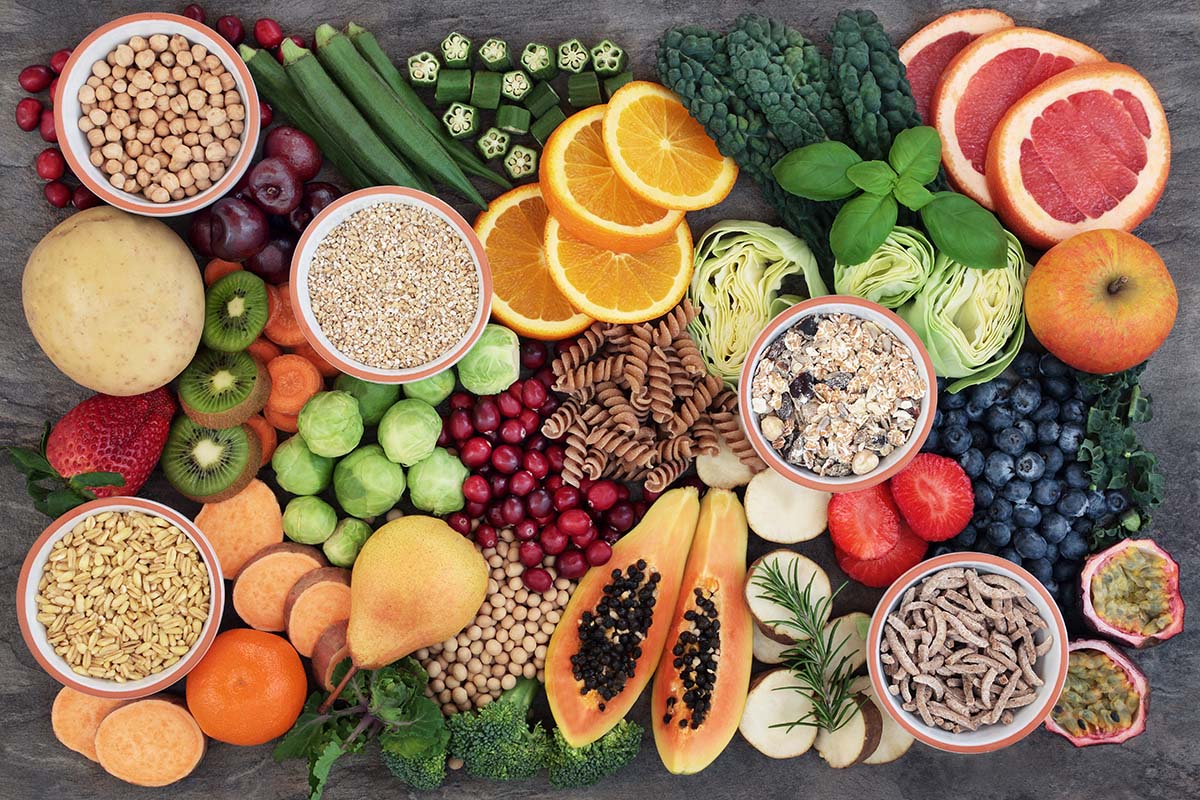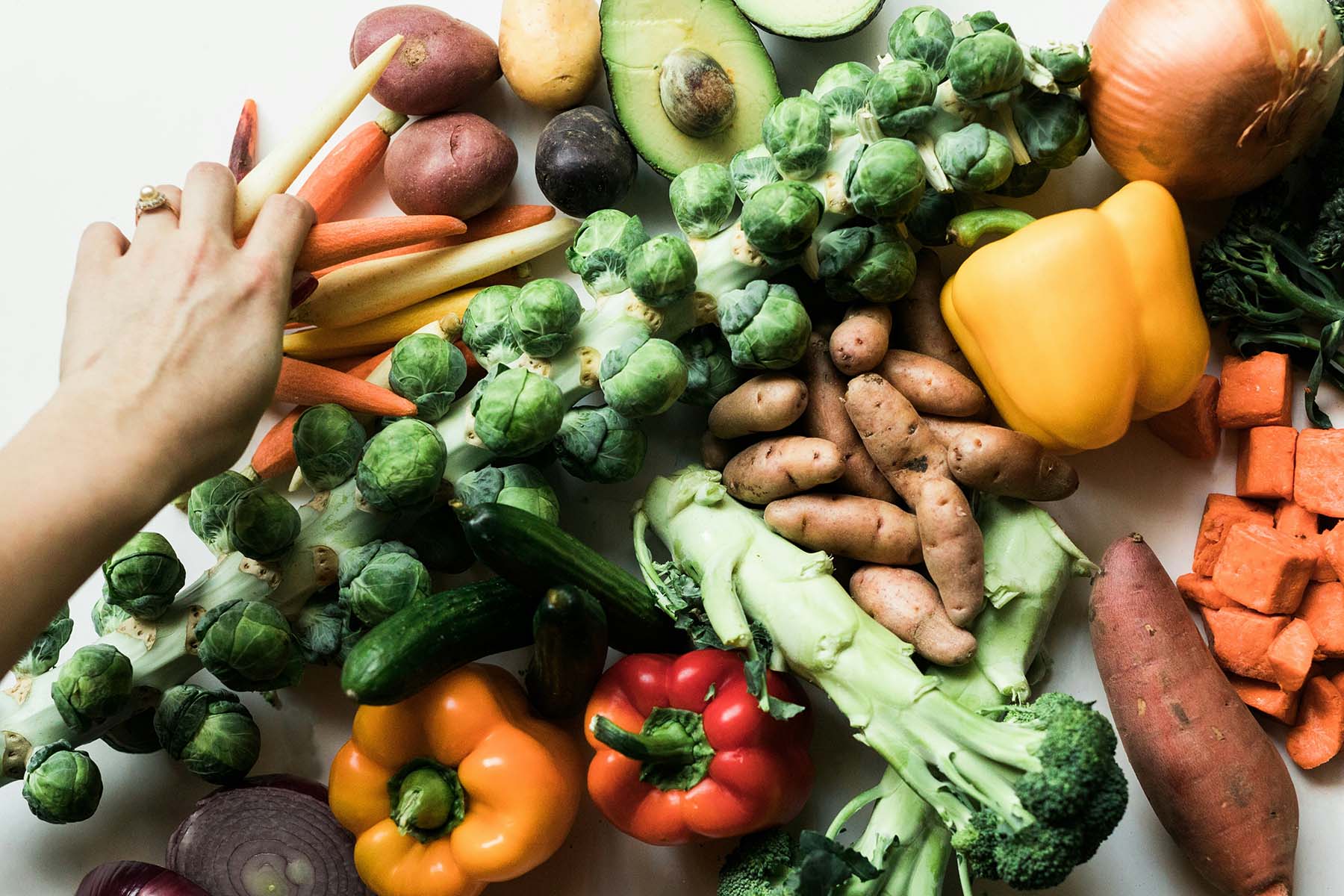Plant-Based Diet: A Key to Lowering Cholesterol Naturally
In a world where heart health is vital, the power of a plant-based diet in managing cholesterol levels has gained significant attention. Many are turning towards natural, wholesome approaches to health, and a pivotal question emerges: Can a plant-based diet effectively lower cholesterol? To answer this, it's essential to delve into the profound impact that plant-based foods, particularly nutrient-rich vegetables and raw foods, have on our body’s cholesterol management.
What is Cholesterol?
Before delving into how a plant-based diet can influence cholesterol levels, it's crucial to understand what cholesterol is and its role in the body. Cholesterol, a waxy, fat-like substance present in all cells, plays a crucial role in producing hormones, vitamin D, and aiding the digestion of foods. While our bodies naturally produce cholesterol, it's also acquired through the consumption of animal-based products.
There are two main types of cholesterol: LDL (low-density lipoprotein), often referred to as 'bad' cholesterol because it can build up in the arteries and lead to heart disease, and HDL (high-density lipoprotein), known as 'good' cholesterol, as it helps remove other forms of cholesterol from the bloodstream. Managing these levels is critical for maintaining heart health and reducing the risk of heart disease and stroke.
Can a Plant-Based Diet Lower LDL Cholesterol?
The impact of a plant-based diet on cholesterol levels can be significant. Plant-based foods are often high in sterols and stanols, natural substances that help lower LDL (Low-Density Lipoprotein) cholesterol, commonly known as 'bad' cholesterol, by preventing the absorption of dietary cholesterol and the reabsorption of cholesterol being eliminated from the liver in bile. Additionally, these diets are rich in omega-3 fatty acids, found in flax seeds, chia seeds, and walnuts, which are known for reducing inflammation and increasing HDL (High-Density Lipoprotein) cholesterol, or 'good' cholesterol. This beneficial HDL cholesterol plays a key role in transporting excess cholesterol back to the liver, where it can be processed and eliminated from the body. This process is vital in maintaining a healthy balance between LDL and HDL levels, which is essential for promoting heart health and reducing the risk of heart disease.
Impacts of a Plant-Based Diet on Cholesterol
Reduced Saturated Fat Intake
A plant-based diet typically involves lower levels of saturated fats. Unlike animal products such as meat, dairy, and eggs, which are high in these fats, plant-based foods offer a healthier alternative that doesn’t compromise heart health. It's important to reduce saturated fat intake because it's associated with higher levels of LDL cholesterol. By making this dietary shift towards plant-based foods, one can significantly decrease the risk of developing cholesterol-related health issues, such as heart disease and stroke.
Increased Fiber Intake
The abundance of dietary fiber in a plant-based diet is a game-changer for cholesterol management. Foods rich in soluble fiber, such as kidney beans, oats, and Brussels sprouts, can bind to cholesterol in the digestive tract, preventing reabsorption, and aiding in its removal from the body. This process effectively lowers LDL cholesterol levels and manages blood pressure, further enhancing heart health.
Minimized Dietary Cholesterol
Plant-based diets excel in minimizing dietary cholesterol since they exclude animal products, which are primary sources of cholesterol. Embracing a diet centered around fresh produce, legumes, and organic whole grains means you’re consuming foods naturally free from cholesterol, thus reducing your overall dietary cholesterol intake.
Increased Antioxidants and Phytochemicals
Plant-based diets offer more than just the benefit of lowering cholesterol; they are rich sources of antioxidants like vitamins C and E, along with essential phytochemicals. These compounds play a crucial role in safeguarding blood vessels from damage and reducing inflammation. Abundant in vegetables and fruits—such as leafy greens and berries—these beneficial substances not only contribute to cholesterol reduction but also promote overall heart health, thereby lowering the risk of heart attack and other cardiovascular diseases.
Lower Cholesterol with Vegetables and Raw Foods
Adopting a vegan or plant-based diet doesn't mean you're limited in choices. A variety of plant-based foods are high in nutrients and low in saturated fats. Opting for plant-based foods can substantially lower the risk of heart disease while enhancing overall well-being. Consider incorporating raw plants into your diet to preserve their nutrient integrity. Unlike cooking processes that may degrade certain vitamins and phytochemicals, consuming raw plants ensures that you receive the maximum nutritional benefit, supporting overall heart health.
Examples of Heart-Healthy Plant-Based Foods
Several plant-based foods stand out for their heart health benefits:
Legumes: Beans, lentils, and chickpeas are excellent fiber sources, aiding in cholesterol management. Add them to salads, soups, or as a protein-rich base for veggie burgers.
Organic Whole Grains: Foods like quinoa, barley, and farro are rich in fiber and nutrients. Serve them as a nutritious side, or enjoy them in whole grain breads. Avoid chemical exposure to herbicides like glyphosate by going organic.
Nuts and Seeds: Almonds, chia seeds, and flax seeds are high in omega-3 fatty acids, beneficial for reducing inflammation and increasing HDL levels that help process excess cholesterol in the liver. Enjoy nuts as a snack, and add chia or flax seeds to yogurt or smoothies.
Fruits: Berries, apples, and citrus contain fiber and antioxidants. Enjoy fruits as is, or add them to salads.
Vegetables: Leafy greens, carrots, and tomatoes provide essential vitamins, minerals, and fiber. Greens such as spinach and kale are perfect for salads, smoothies, or sautéed as a side dish. Heartier vegetables can be roasted or added to soups and stews.
Organic Soy Products: Soy milk, tofu, and tempeh are great protein sources and help in reducing LDL cholesterol levels. Replace dairy milk with soy milk, and use tofu in stir-fries, and tempeh as a meat substitute in sandwiches or salads.
Conclusion
Embracing a plant-based diet or a diet rich in vegetables, raw foods, and heart-healthy nutrients is a powerful step toward managing cholesterol levels. You can significantly improve your heart health by consciously reducing saturated fat intake, increasing fiber consumption, and actively seeking foods that naturally lower cholesterol levels, such as those rich in antioxidants and phytochemicals. A plant-based diet, abundant in health-promoting properties, is not just a dietary choice but a lifestyle shift towards better health and longevity.








